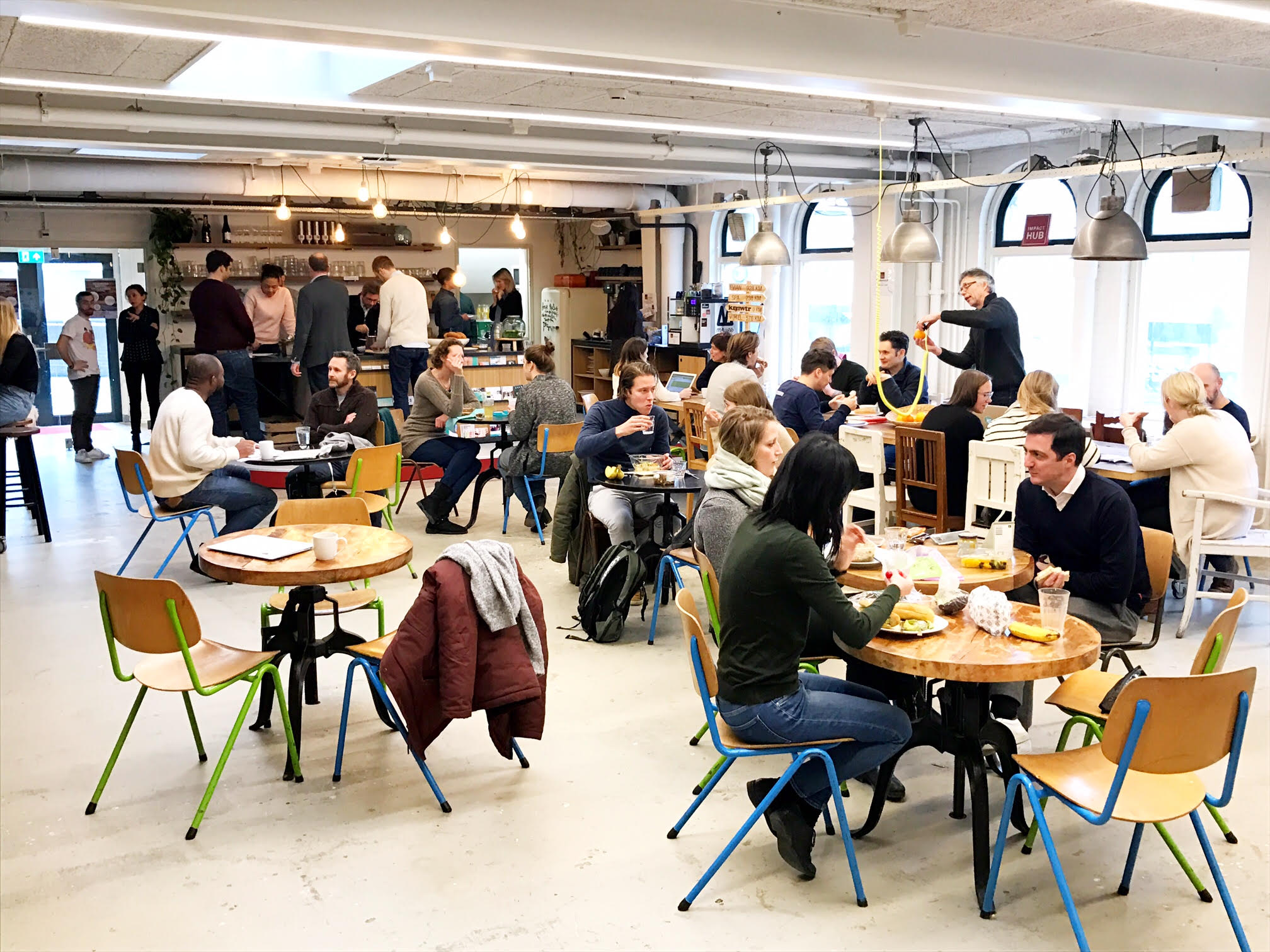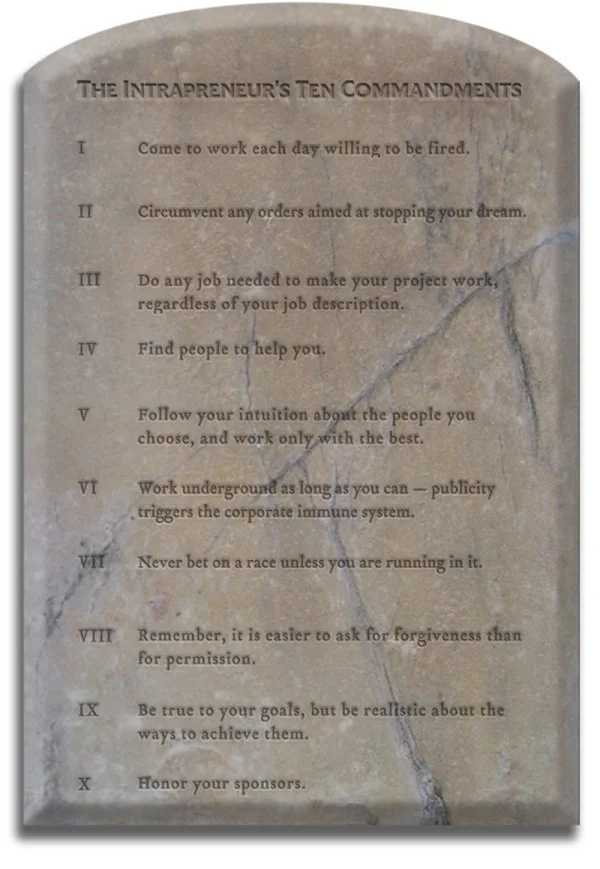Tatiana Glad On Social Entrepreneurship, Innovation and Spaces That Foster Positive Impact
Tatiana Glad is a social entrepreneur, sustainability practitioner and change strategist working across sectors and cultures with a focus on urban innovation, community-building and social entrepreneurship.
Tatiana is founder and director of Impact Hub Amsterdam, holding the impact and talent portfolios as a global Impact Hub Board member, and co-founder of Waterlution. She serves on the Advisory Board of MovingWorlds, Board of Elos Foundation and on the International Supervisory Group of AIESEC International. She is an Art of Hosting steward and practitioner.
Tatiana is Canadian, currently based in Amsterdam.
Tatiana discusses some of the key ingredients for spaces that foster social innovation, she gives clear insights about entrepreneurship and provides tips on creating positive social impact.
Highlights from the interview (listen to full details on the podcast)
[Tom Allen] - To kick off Tatiana, could you please share a bit about your background and what lead you to what you’re doing today? [1:57]
[Tatiana Glad] - Having moved to the Netherlands almost 10 years ago, it took me back to my Dutch roots. My parents were immigrant entrepreneurs to Canada who started a bakery, so I grew up in that kind of entrepreneurial family environment. What they taught me was working with your community, the power of small business and the power of engaging across cultures. [Tatiana explains how diversity was the norm and how that lived experience is something she values highly.]
[Tatiana explains about her experience with AIESEC from a young age.] A lot of the things I've learnt, pragmatic things about running an experience or speaking to people or facilitating things I actually learnt by learning by doing. Making mistakes in a fun way because you didn't really know what the consequences were, so sometimes naivety is actually really good!
For me it's about encouraging young people and the next generation to take as many opportunities to get involved. [She explains further and how her experience relates to what she is doing today.]
[Tatiana talks about how she went on to work for business. She talks about understanding money and how it's a divisive issue. Tatiana went on to work for Citigroup where she kept a copy of the 10 Commandments of Intrapreneurship on her desk.]
A lot of social entrepreneurs I see nowadays have great ideas to change the world but they shrink at the money conversation.
[She explains her experience with micro finance in Bangladesh and how she founded Waterlution as a response to the local issue of wasting water. Tatiana talks about her move to Amsterdam and supporting local issues.]
Because we have such a great social security system here, there is a sense that the government takes care of it [problems]. I think that that creates complacency. My personal enquiry was trying to find out if there were any social innovators. [She explains further.] I found a few people and then it became a community and we'd meet around giving each other business support or meet around issues we were interested in. It grew to become quite a network. I'd been a member of the first Impact Hub in London and so it was a bit like, "what if we started something like that here and how would that work and how would we grow it bottom up in the Dutch context." [She explains more about the Impact Hub.]
What have been the challenges in pulling together the Impact Hub in Amsterdam? [12:16]
[Tatiana talks about the challenges of being an entrepreneur, finding a space and how they've moved a few times.]
Which do Impact Hubs actually do? [13:34]
We focus on three pillars; Community, Space and Programs. [Tatiana talks in detail about these three pillars and about creating a strong community of shared values.]
One of the many spaces at Impact Hub Amsterdam.
From an outside perspective, the Netherlands seems to be doing some great work in the social innovation space. Would you agree with that and if so, could you please tell us about some of the other programs and initiatives run by the government that you believe are really driving this forward? [15:22]
One of the things I find most interesting going on right now are the experiments around the citizen basic income in Utrecht. [She talks about this initiative, the costs of unemployment and thoughts about how it's time to shift the gears in government and institutions.]
If people are a little more supported, do they naturally contribute a bit more to society or find some place where their talents are better used. [Tatiana adds further detail and some interesting thoughts.]
[Tatiana talks about the Dutch Sustainable Trade Initiative (IDH) and the supply chains in the country which have had an interesting systemic look from the government.]
How have you seen the social entrepreneurship sector shift and what are the typical challenges that you see social entrepreneurs coming up against? [18:57]
I didn't think up until a few years ago that there was much support. People didn't really understand this sector. I added up the worth of our economy and it came up to 38 million Euros. That's the amount of revenue this community generates. We're actually a viable part of the economy and we've created 400+ jobs. To demonstrate that has been important on our part. To measure social entrepreneurship and take ourselves seriously has been a shift.
On the other side we've seen people embrace this as a career. The career trajectory was very much in the school being bred about getting a job in a multinational company because the Netherlands has done a great job post war building itself up with these big companies and providing lifelong employment. The game is changing for them as well and expectations are shifting on both sides.
I'm starting to see a lot of young people come out of school and say, 'I want to be an entrepreneur,' and seeing that as potential career choice as opposed to maybe a hobby.
The whole impact investing field has grown in the last few years. [Tatiana explains further about how she's trying to advance this field.]
The bustling cafe at Impact Hub Amsterdam.
What advice would you give to someone who is thinking of starting their own social impact initiative? [22:07]
The first thing is to have a purpose and a sense of what you're trying to change in the world and what your theory of change is behind that. We could have five people working all on making food healthier but we might have five different approaches to that. I think they're all valid until the food system has actually shifted.
I THINK HAVING A CLEAR PURPOSE AND A CLEAR THEORY OF CHANGE THAT YOU CAN ARTICULATE.
Ours is impacting societal issues through entrepreneurial action. And I think having a good strong entrepreneurial team. At the Impact Hub we believe in has to be collaborative action and we believe in the power of community and we don't think anybody does it solely alone. So making sure you have a good entrepreneurial team and/or environment that supports you because when the going gets tough you've got to lean on somebody.
TO START SOMETHING YOU NEED THE COMPLIMENTARY SKILLS. NO-ONE HAS ALL THE SKILL SETS. YOU SHOULD ALWAYS LOOK FOR PEOPLE THAT ARE AS GOOD AS OR BETTER THAN YOU.
Take your time finding good people and see if you have resonance before getting into business together.
In addition to Impact Hub you also do consultancy, could you please tell us about how your consultancy specialises in societal transition? [24:06]
To me there's two angles about societal transition. One is the content side. The other side is if the content is really about societal change and clear, then what's the process? So I really specialise in the participatory piece of it. [Tatiana talks about the Art of Hosting and what she has learnt through that community, as well as learning about how societal shift happens. She talks about her mindset, entrepreneurship and the role that Impact Hub plays.]
What do you believe are some of the important traits of an effective leader? [26:33]
Vision, but with that is having a sense of purpose and possibility. Your life is short, why not try and do the impossible or have a vision to strive for that you get out of bed for in the morning. As Otto Sharmer says in Theory of U, 'being pulled from the future.' So not always reacting to your past but being pulled from the future. I think communication and being able to translate that in a way that invites people.
How do you communicate with passion?
How do you translate all of that into action?
Try something, prototype, don't sit on your idea forever. Make a mistake and learn from that.
Put it into practice and see if it resonates. If you don't know how to take action, ask your community.
What are the key ingredients required to create a healthy, collaborative and innovative work environment? [28:40]
Shared purpose. Everything starts with that. Having a sense of what you are all working on together.
Participation. [Tatiana shares examples.]
Results. To look back on an understand what you have achieved and serve as a springboard for next step of your shared purpose and action.
What are your favourite tools or processes that you use on a weekly basis and couldn’t live without? [29:52]
The Art of Hosting body of practice is both an ethos and practical tools. From this, check ins and check outs. It's very simple to go around the circle and do that.
Holacracy - tacticals and governance meetings. [Tatiana explains in depth.]
Philips Sunlamp [Tatiana thinks this has changed her life!]
To finish off, could you please recommend 3 great books that you think would inspire our listeners? [33:00]
[Tatiana discusses in detail the books listed below.]
Initiatives, people and resources mentioned in the podcast
Recommended books
The Art of the Start by Guy Kawasaki
Blessed Unrest by Paul Hawken
Leadership and the New Science by Margaret Wheatley
Birth of The Chaordic Age by Dee Hock








